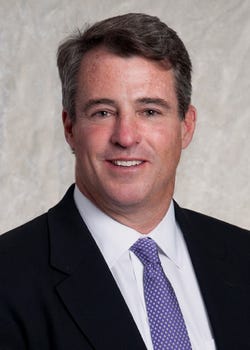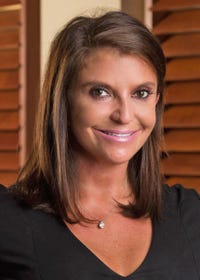Amid States Scrutiny, Dietary Supplement Industry Retains Former Maryland AG
AHPA and UNPA have retained Doug Gansler for six months to build a rapport with the state attorneys general, educate them and shift the focus of their efforts toward adulterated and unsafe products.
January 22, 2016

Doug Gansler is part of an exclusive club of men and women who have spearheaded law-enforcement efforts on behalf of the 50 states. It’s little wonder that the American Herbal Products Association (AHPA) and United Natural Products Alliance (UNPA) have hired him to build relationships with state attorneys general and educate them about an industry that has been under siege for the last year.
It’s a job right up the lawyer’s alley. He is the former Attorney General of Maryland and past president of the National Association of Attorneys General (NAAG).
“It’s a very tight-knit circle," Gansler said, referring to the network of current and former state attorneys general (AGs), in a phone interview this week. “You develop very strong friendships."

Among the AGs who are no stranger to Gansler: New York Attorney General Eric Schneiderman, whose bombshell investigation a year ago into herbal supplements ignited criticisms that the industry is poorly regulated, fraudulent and in dire need of reform.
“I know General Schneiderman very well," said Gansler, a partner in Washington with the law firm BuckleySandler LLP, who described his former colleague as “very intelligent, very astute and very consumer-centric."
AHPA and UNPA have retained Gansler for six months to build a positive rapport with the states, educate them and shift the focus of AGs’ efforts toward non-compliant firms as well as adulterated and unsafe products, according to UNPA and AHPA in a joint statement. The former government lawyer also has been tapped to refute inaccurate claims in the media and provide the states resources “in support of responsible industry and to create industry advocates," the trade associations said.
“It is our expectation that, with Mr. Gansler’s assistance, we will be able to create positive, collaborative working relationships with state attorneys general in support of the responsible dietary supplement industry," UNPA President Loren Israelsen said in a statement.
Gansler’s relationship with New York’s top law-enforcement official could help diffuse some of the tension that has existed between Schneiderman and the dietary supplement industry. Still, he acknowledged an industry advocate wasn’t bound to divert a prosecution of a company that breaks the law.
“My job is … to inform [and] educate on what the industry is and what the industry is not," he said.
Schneiderman has raised a number of concerns about the dietary supplement industry in two separate investigations that captured national headlines. Nearly a year ago, Schneiderman announced controversial findings that a number of store-brand products failed to contain the labeled herbs and were contaminated with undeclared ingredients. Dietary supplement executives—including some who later met with Schneiderman’s team—blasted as unreliable the attorney general's dependence on DNA testing to detect herbs in botanical extracts and his failure to publicly release all the testing documents.
Such critiques only made the New York government lawyers more suspicious of the industry, according to Todd Harrison, a Venable LLP attorney in Washington who met with Schneiderman’s staff last year on behalf of the Organic & Natural Health Association (ONHA).
Toward the end of the conversation, Harrison recounted in an interview last year, a New York official remarked, �“You know something, the hostility coming out of the industry, the whining and crying, you know what that makes us think? That makes us think there is something there because where there’s smoke, there must be fire."
The hiring of Gansler may help to contain the perceived fire and compliments the industry’s efforts that have been underway for several months to engage with the states. A number of trade associations have already sat down with Schneiderman office and other state AGs.
Natural Products Association (NPA) CEO and executive director Daniel Fabricant, Ph.D., said representatives of his trade group have met multiple times with New York’s lawyers beginning in May 2015 and as recently as last month. NPA’s law firm, Porzio Bromberg & Newman P.C., has joined in the meetings with Schneiderman’s office as has Thomas Suozzi of the law firm Harris Beach PLLC, Fabricant noted during a phone interview.
“We tried to understand their concerns," explained Fabricant, commenting on the meetings with Schneiderman’s office. “They tried to understand the industry better."
In a joint statement issued in May, Fabricant and Schneiderman declared, “We share a common objective of ensuring herbal products bought by consumers are authentic, pure and sold in full compliance with consumer protection laws."
Steve Mister, president and CEO of the Council for Responsible Nutrition (CRN), said representatives of his trade association have met with more than 15 of the state AGs. Joining in the conversations: CRN staff and a law firm that the trade association retained, Cozen O’Connor P.C., which has a state AG practice.
Lori Kalani, co-chair of Cozen O’Connor’s State Attorneys General Practice, described the meetings as positive and said they have “gone a long way to showing the industry by and large regulates itself and cares and really goes above and beyond."

“AGs and their staff appreciate the industry engaging in a productive discussion and helping educate them, especially when it comes to technical subjects such as the nutritional industry," she said in a phone interview.
Mister cited another benefit of interacting with the states.
“Some of the AGs have kind of distanced themselves from what happened in New York," he explained, “as they began to be educated about the limits of DNA testing and what actually happened up there."
Still, that doesn’t mean the states have entirely backed off the industry. Oregon Attorney General Ellen Rosenblum, who sued GNC last year, is conducting a separate investigation related to dietary supplements, Reuters reported in a Jan. 14 article. INSIDER reached out to Kristina Edmunson, a spokeswoman for Rosenblum, who had no comment.
As what occurred in a case involving 5-Hour Energy, Gansler acknowledged the possibility that multiple states could launch future investigations into the supplement industry.
“Will there be attorneys general bringing cases against individual companies about their products in the future? Absolutely," he declared. “Can some of those cases evolve into multistate investigations? Absolutely."
If that happens, it’s a safe bet the industry will be calling Gansler for advice and representation. “Frankly the industry has operated outside the gaze of attorneys general to this point," he said, “and the industry I think rightfully now has in retaining someone like me … a seat at the table with" the AGs.
You May Also Like